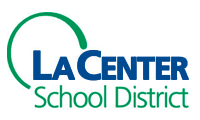2406P
Procedure: The Arts Mastery-Based Learning and CreditDemonstrating Mastery/Proficiency in the Arts
The district will manage the assessment process so that students seeking mastery-based credit can demonstrate mastery/proficiency in art skills. Mastery-based credit can be used either for awarding credit in place of a traditional course, or for credit recovery purposes.
Students may recover credit by demonstrating mastery in the following ways:
- A student may recover up to one art credit if the student meets standard on another approved state alternative that meets the graduation requirement.
Students may obtain one arts credit for passing a district-created assessment that is aligned to state learning standards. Students do not need to have attempted and failed a course before being eligible for these options:
- Locally created written or oral test;
- Written report by the student;
- Student-designed portfolio of work;
- Student presentation or oral defense of their learning in the course;
- Hands-on demonstration of knowledge and skills;
- A combination of assessment approaches, as defined by the district; or
- Other locally developed methods.
Equivalency course of study: Students may receive credit for learning experiences outside of school that align to state learning standards, in accordance with Board Policy 2413 – Equivalency Credit Opportunities and WAC 392-410-300.
Successful completion of next higher-level course: Credit may be awarded for a course when the student successfully completes the next higher-level course in a sequence that includes a natural progression of the state learning standards from the previous course. State or locally determined learning standards will be used as the guide when making decisions regarding what courses should qualify.
Mastery-based credit is available in arts courses if the student achieves a C or higher grade in the next-higher level course
The district collects and annually reviews disaggregated data to see which subgroups of students are receiving mastery-based credit. If disproportionality is found, the district takes appropriate actions to ensure equitable access to these crediting opportunities.
Adoption Date: April 28, 2020 Revised: March 26, 2024
